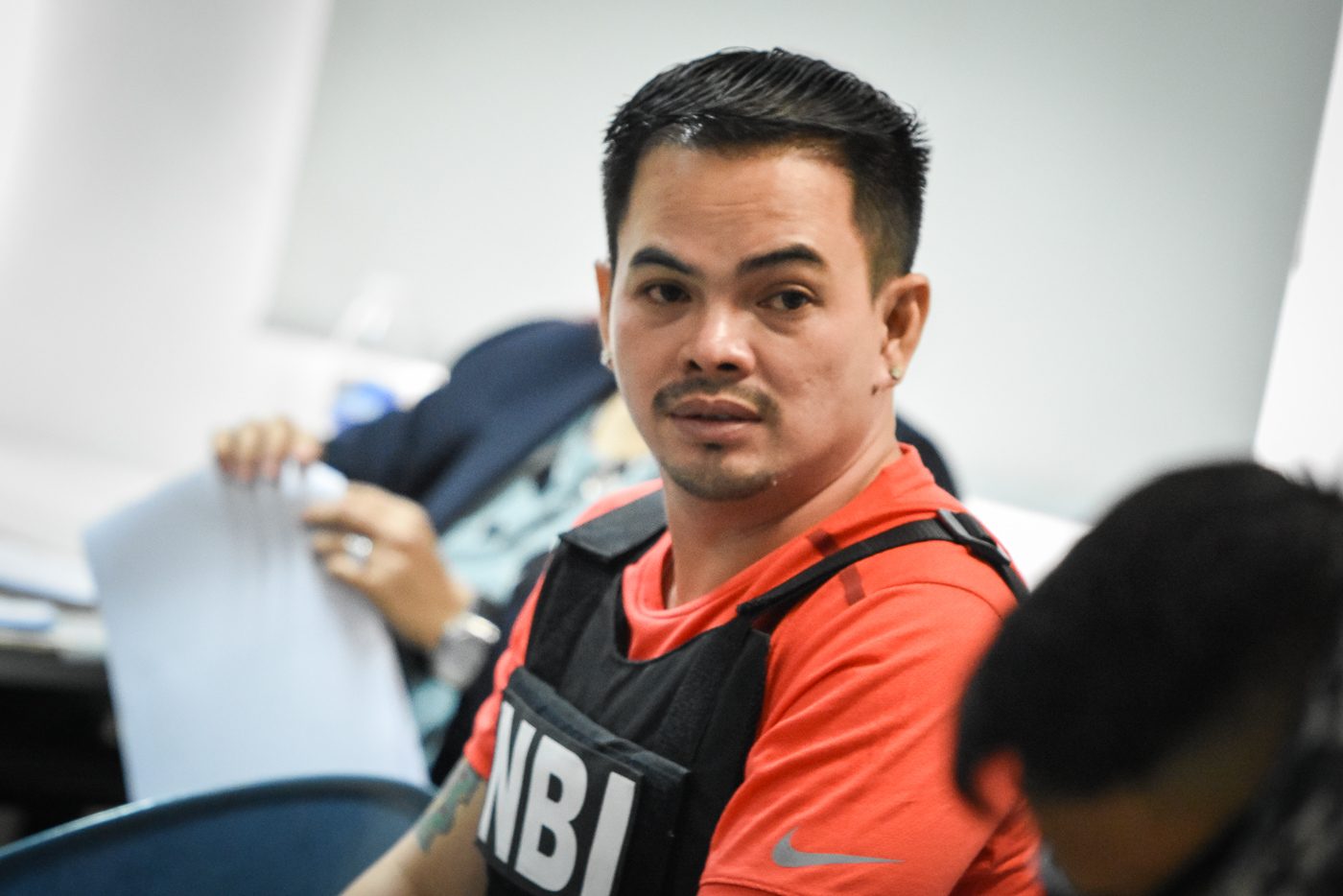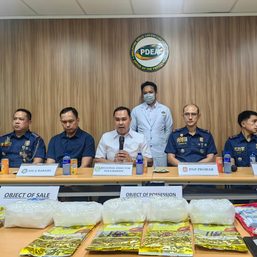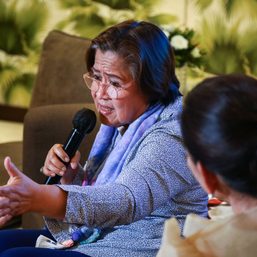SUMMARY
This is AI generated summarization, which may have errors. For context, always refer to the full article.

MANILA, Philippines – A Makati court has acquitted alleged drug lord Rolan “Kerwin” Espinosa and another accused in a drug trade charge filed against them in 2018.
“WHEREFORE, in view of the foregoing, the Demurrer to Evidence filed by both accused are hereby GRANTED. Accordingly, ROLAN E. ESPINOSA AND MARCELO L. ADORCO ARE hereby ACQUITTED of the offense charged on reasonable doubt,” the dispositive portion of the resolution read.
The 21-page decision by Presiding Judge Veronica Tongio-Igot also ordered the release of Espinosa and his fellow accused Marcelo Adorco from detention, “unless they are confined for any other unlawful cause.” The resolution was made on June 6, but publicized only on Thursday, June 8.
Espinosa and Adorco faced a drug charge due to alleged violation of section 26 (b), in relation to section 5, article II of Republic Act No. 9165 or the Comprehensive Dangerous Drugs Act of 2002. The law’s provision penalizes the attempt or conspiracy to commit “sale, trading, administration, dispensation, delivery, distribution, and transportation” of illegal drugs.
The alleged drug lord was acquitted through a demurrer to evidence.
In 2022, Espinosa retracted all his accusations against detained former senator Leila de Lima and said he “coerced, pressured, intimidated and seriously threatened” to make his previous statement. Espinosa was among the key persons who retracted statements against De Lima, along with former Bureau of Corrections chief Rafael Ragos.
After the prosecution rests its case in a trial, the accused’s camp can ask the court to allow them to file a demurrer to evidence. Once allowed, the accused can file the said petition that would basically ask the court to dismiss the prosecution’s case on the grounds of insufficient evidence.
If granted, the demurrer to evidence has the same effect as an acquittal.
This is Espinosa’s second acquittal after Makati City RTC Branch 64 dismissed the illegal drug trafficking charges him in 2021 due to lack of evidence. He was acquitted in the said case also through a demurrer.
In an order dated March 16, 2023, the court allowed Espinosa’s camp to file a demurrer to evidence. Adorco filed his on March 31, while Espinosa did on April 4.
The ruling
In explaining the ruling, the court said the prosecution failed to prove the existence of the elements of conspiracy to commit illegal drug trading under RA No. 9165’s section 26. The court added the prosecution was unable to establish the elements of the alleged crime to sustain a conviction beyond reasonable doubt.
On another ground, the court said the testimonies of the prosecution’s witnesses “have no probative value for being hearsay.”
“While these witnesses can testify on the acts they performed in the course of their official duties, their testimonies on the alleged commission of Illegal Trading as relayed to them by Accused Adorco constitute hearsay,” the court explained.
The court added that the witnesses’ testimonies on the conduct of the probe into Adorco is admissible “because they have personal knowledge of the same.” However, the witnesses’ testimonies on the alleged illegal drug trade is hearsay because their knowledge on the said matter was limited to the ideas relayed to them, according to the court.
Makati City RTC Branch 65 added that Adorco’s sworn statements are considered hearsay because he did not affirm their content and Adorco had not been subjected to examination.
Another ground the court cited was Adorco’s extrajudicial confessions, which were not valid because they failed to conform to constitutional requirements. The court said an extrajudicial confession is not valid when obtained in violation of any of the following rights:
- To remain silent
- To have an independent counsel preferably of his choice
- To be provided a counsel if unable to secure one
- “To be assisted by one in case of waiver, which should be in writing, of the foregoing”
- To be informed of all such rights
The court said Adorco’s extrajudicial confessions failed to conform to the said constitutional requirements.
Lastly, Espinosa’s extrajudicial confession made during Senate hearings is not valid because the prosecution failed “to show that it was made voluntarily,” the court added. – Rappler.com
Add a comment
How does this make you feel?


![[WATCH] Mary Jane Veloso’s mother pleads Marcos, Jokowi anew: Free my daughter](https://www.rappler.com/tachyon/2024/01/mary-jane-veloso-cesar-celia-protest-clemency-january-10-2024-005-scaled.jpg?resize=257%2C257&crop=717px%2C0px%2C1706px%2C1706px)



![[Free to Disagree] De Lima stood firm. But some men are trash.](https://www.rappler.com/tachyon/2024/07/TL-Leila-de-lima-stood-firm-some-men-brave-some-trash-July-1-2024.jpg?resize=257%2C257&crop_strategy=attention)

![[Rappler Investigates] When China, Leila, Sara conspire](https://www.rappler.com/tachyon/2024/06/saraduterte-west-ph-sea-leila-de-lima-newsletter-june-27-2024.jpg?resize=257%2C257&crop=279px%2C0px%2C720px%2C720px)



![[OPINION] From ‘Puyat’ to ‘Tulog’: Clout-chasing street signs disrespected history](https://www.rappler.com/tachyon/2024/07/gil-puyat-july-26-2024.jpg?resize=257%2C257&crop=389px%2C0px%2C1080px%2C1080px)


There are no comments yet. Add your comment to start the conversation.